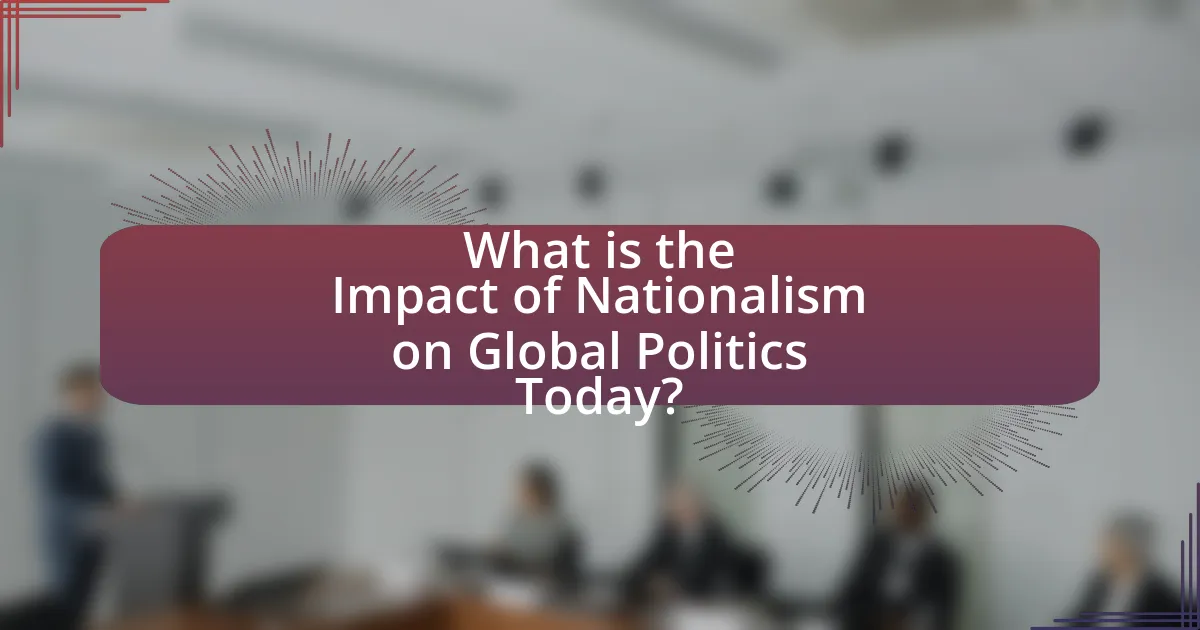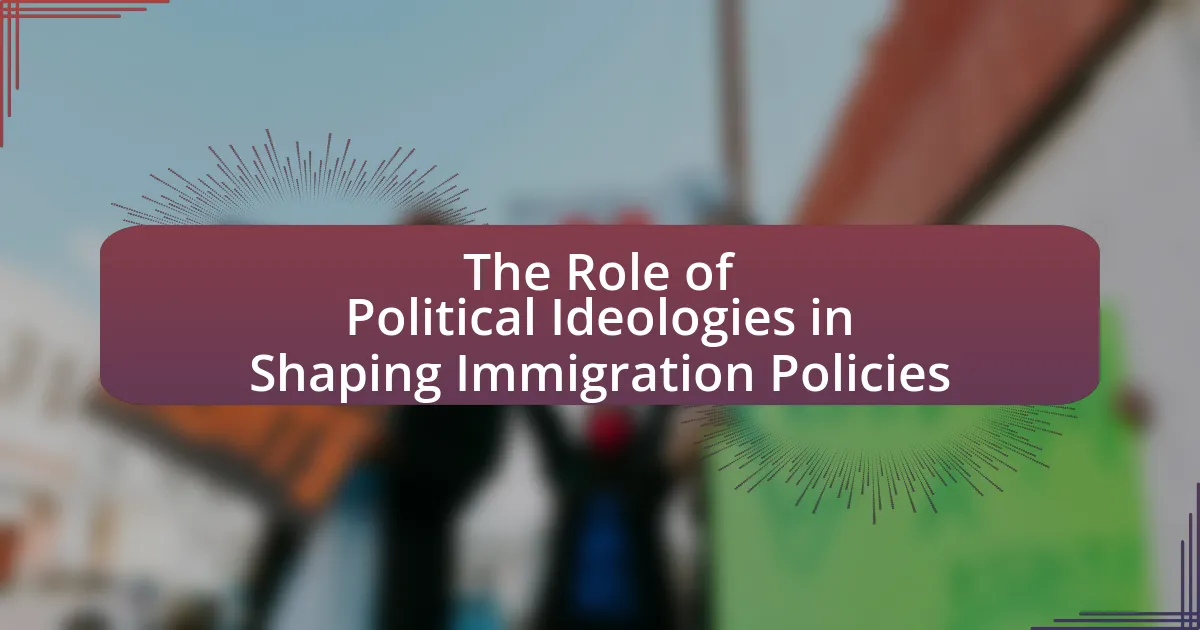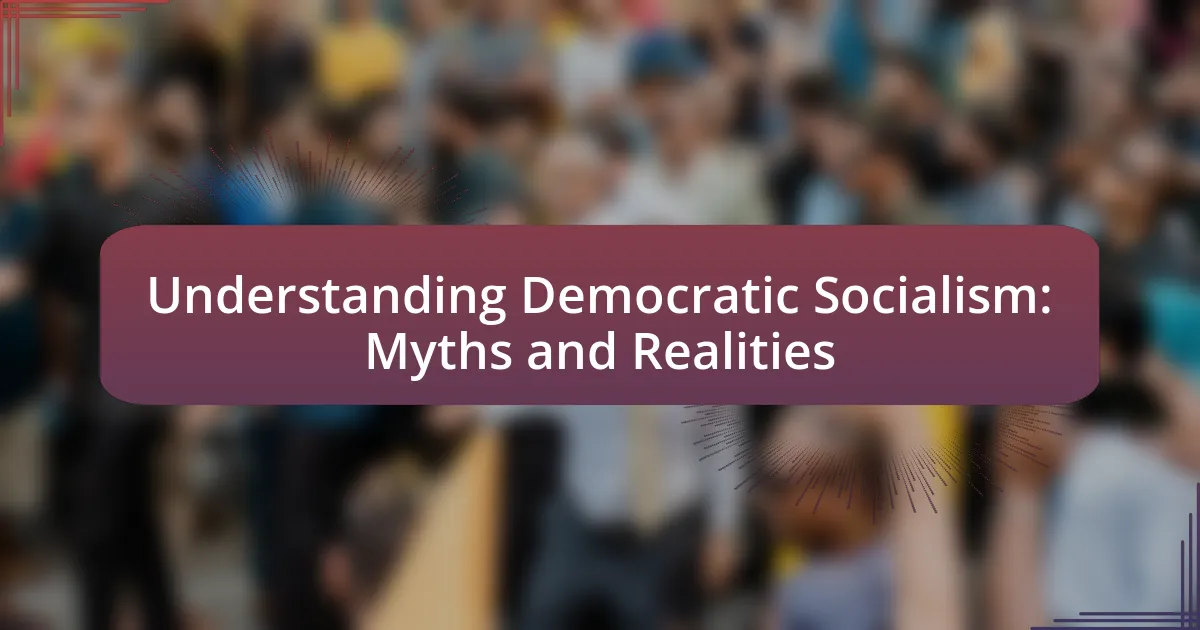Nationalism plays a crucial role in shaping global politics today, influencing both domestic policies and international relations. The article examines how nationalism fosters unity within nations while simultaneously creating tensions between them, as seen in protectionist policies and movements like Brexit. It explores the evolution of nationalism, its historical roots, regional interpretations, and its impact on national identity, governance, and public policy. Additionally, the article discusses the positive and negative effects of nationalism on global relations, the challenges it poses to international organizations, and strategies to mitigate its adverse impacts, ultimately highlighting its implications for future global security and cooperation.

What is the Impact of Nationalism on Global Politics Today?
Nationalism significantly influences global politics today by fostering both unity within nations and tensions between them. This rise in nationalism has led to increased protectionist policies, as seen in countries like the United States and the United Kingdom, where leaders prioritize national interests over international cooperation. For instance, the Brexit referendum in 2016 exemplified how nationalist sentiments can drive a nation to withdraw from multinational agreements, impacting trade and diplomatic relations. Additionally, nationalism has contributed to conflicts in regions such as Eastern Europe and the Middle East, where ethnic and national identities often clash, leading to instability and humanitarian crises. These dynamics illustrate that nationalism shapes not only domestic policies but also international relations, creating a complex landscape in global politics.
How has nationalism evolved in the context of global politics?
Nationalism has evolved significantly in global politics, transitioning from a primarily state-centric ideology to a more complex phenomenon influenced by globalization, transnational movements, and identity politics. Initially, nationalism emphasized the sovereignty and unity of nation-states, as seen in the 19th and early 20th centuries, where it played a crucial role in the formation of nation-states and independence movements. However, in the late 20th and early 21st centuries, the rise of globalization has led to a resurgence of nationalism characterized by populist movements that often reject internationalism and advocate for local interests, as evidenced by events like Brexit and the election of nationalist leaders in various countries. This shift reflects a reaction to perceived threats from immigration, economic globalization, and cultural homogenization, demonstrating that nationalism now often intertwines with issues of identity, security, and economic protectionism.
What historical events have shaped modern nationalism?
The French Revolution is a pivotal historical event that has significantly shaped modern nationalism. This revolution, which began in 1789, introduced the concepts of popular sovereignty and national identity, emphasizing the idea that the nation is defined by its people rather than by monarchy or aristocracy. The spread of revolutionary ideas across Europe led to the rise of national movements, as various ethnic and cultural groups sought self-determination and independence from empires. Additionally, the unification of Italy and Germany in the 19th century further solidified the notion of nation-states, where shared language, culture, and history became central to national identity. These events collectively laid the groundwork for contemporary nationalist movements, influencing global politics by fostering a sense of belonging and collective identity among diverse populations.
How do different regions interpret nationalism?
Different regions interpret nationalism in varied ways, influenced by historical, cultural, and political contexts. In Europe, nationalism often emphasizes ethnic identity and historical grievances, as seen in movements like Scottish independence and Catalan nationalism, which seek greater autonomy based on distinct cultural identities. In contrast, in Asia, nationalism can be tied to anti-colonial sentiments and state-building, exemplified by India’s struggle for independence from British rule, which fostered a unifying national identity. In Africa, nationalism frequently intersects with post-colonial challenges, where leaders like Kwame Nkrumah of Ghana promoted pan-Africanism to unite diverse ethnic groups against colonial legacies. These interpretations reflect how nationalism shapes political landscapes, influencing policies and international relations in each region.
Why is nationalism significant in contemporary political discourse?
Nationalism is significant in contemporary political discourse because it shapes identity, influences policy, and drives political movements globally. Nationalist sentiments often emerge in response to globalization, leading to a resurgence of local identities and calls for sovereignty, as seen in the Brexit referendum where 51.9% of voters chose to leave the European Union, emphasizing national control over immigration and trade. Additionally, nationalism can mobilize support for political parties, as evidenced by the rise of nationalist leaders in various countries, reflecting a shift in public sentiment towards prioritizing national interests over international cooperation. This trend highlights the complex interplay between national identity and global politics, making nationalism a crucial factor in understanding current political dynamics.
What role does nationalism play in shaping national identity?
Nationalism plays a crucial role in shaping national identity by fostering a sense of belonging and unity among individuals within a nation. This collective identity is often built on shared history, culture, language, and values, which nationalism emphasizes to create a cohesive national narrative. For instance, the rise of nationalism in the 19th century led to the unification of Italy and Germany, where common cultural and historical elements were highlighted to forge a national identity. Additionally, nationalism can influence political movements and policies, as seen in contemporary examples where nationalist sentiments drive calls for independence or autonomy, such as in Catalonia or Scotland. These movements illustrate how nationalism not only shapes identity but also impacts political landscapes, reinforcing the connection between national identity and the pursuit of self-determination.
How does nationalism influence public policy and governance?
Nationalism significantly influences public policy and governance by prioritizing national interests and identity over global considerations. This influence manifests in policies that emphasize sovereignty, cultural preservation, and economic protectionism, often leading to the implementation of laws that restrict immigration and promote domestic industries. For instance, countries like the United States and the United Kingdom have adopted nationalist policies that focus on “America First” and “Brexit,” respectively, which reflect a shift towards prioritizing national over international obligations. These policies can result in increased tensions with other nations and affect international cooperation, as seen in trade disputes and diplomatic relations.
What are the positive and negative effects of nationalism on global relations?
Nationalism has both positive and negative effects on global relations. On the positive side, nationalism can foster a sense of unity and identity among citizens, leading to increased social cohesion and national pride, which can enhance a country’s diplomatic standing. For example, during the post-World War II era, countries like Japan experienced a surge in national pride that contributed to their economic recovery and strengthened international partnerships.
Conversely, nationalism can lead to isolationism and conflict, as countries prioritize their interests over global cooperation. This is evident in recent trends where nationalist movements in various countries have resulted in withdrawal from international agreements, such as the United Kingdom’s Brexit decision, which has strained relations with the European Union and other nations. Additionally, extreme nationalism can incite xenophobia and conflict, undermining global stability and cooperation.
How does nationalism contribute to international cooperation?
Nationalism contributes to international cooperation by fostering a sense of shared identity and purpose among nations, which can lead to collaborative efforts on global issues. When countries prioritize their national interests, they often recognize the need for alliances and partnerships to address challenges such as climate change, security threats, and economic stability. For instance, the European Union exemplifies how nationalist sentiments can drive member states to cooperate on trade, environmental policies, and collective security, despite their individual national identities. This cooperation is further evidenced by international agreements like the Paris Agreement, where nations unite under a common goal to combat climate change while still maintaining their national sovereignty.
What are the risks associated with extreme nationalism?
Extreme nationalism poses significant risks, including social division, conflict escalation, and the erosion of democratic values. Social division occurs as extreme nationalism fosters an “us versus them” mentality, leading to increased xenophobia and discrimination against minority groups. Historical examples, such as the rise of Nazi Germany, illustrate how extreme nationalist ideologies can culminate in widespread violence and genocide. Additionally, extreme nationalism can escalate conflicts, as seen in the Balkan Wars of the 1990s, where nationalist fervor contributed to brutal ethnic conflicts. Furthermore, extreme nationalism undermines democratic values by prioritizing national identity over individual rights, often resulting in authoritarian governance, as evidenced by the rise of populist leaders in various countries who exploit nationalist sentiments to consolidate power.
How does nationalism interact with globalization?
Nationalism interacts with globalization by creating a tension between local identities and global interconnectedness. Nationalist movements often arise in response to perceived threats from globalization, such as cultural homogenization and economic competition, leading to a resurgence of local identities and policies that prioritize national interests. For example, the rise of populist leaders in various countries, such as Donald Trump in the United States and Marine Le Pen in France, illustrates how nationalism can manifest as a reaction against global trade agreements and immigration policies perceived as undermining national sovereignty. This interaction can result in protectionist measures, as seen in the backlash against free trade, which can hinder global economic integration and cooperation.
What challenges does nationalism pose to international organizations?
Nationalism poses significant challenges to international organizations by undermining their authority and effectiveness. Nationalist movements often prioritize state sovereignty over collective action, leading to resistance against international agreements and norms. For instance, the rise of nationalist governments in countries like the United States and the United Kingdom has resulted in withdrawal from international treaties, such as the Paris Agreement and the European Union, respectively. This trend disrupts global cooperation on critical issues like climate change and trade, as nations prioritize their own interests over collaborative solutions. Additionally, nationalism can foster xenophobia and isolationism, further complicating the ability of international organizations to address transnational issues effectively.
What are the implications of nationalism for future global politics?
Nationalism will significantly shape future global politics by fostering both fragmentation and cooperation among nations. As countries increasingly prioritize national interests, this trend may lead to the rise of protectionist policies, undermining international trade agreements and alliances. For instance, the Brexit referendum exemplified how nationalist sentiments can drive a nation to withdraw from multilateral agreements, impacting economic relations and political alliances. Additionally, nationalism can provoke conflicts over territorial disputes, as seen in regions like Eastern Europe and the South China Sea, where national identity and sovereignty are fiercely contested. Conversely, nationalism may also inspire movements for self-determination, potentially leading to new states or autonomous regions, which could alter geopolitical landscapes. Thus, the implications of nationalism are multifaceted, influencing both the potential for conflict and the dynamics of international cooperation.
How might nationalism affect global security and conflict?
Nationalism can significantly affect global security and conflict by fostering tensions between nations and exacerbating existing rivalries. When a nation prioritizes its own interests and identity over international cooperation, it can lead to isolationist policies and aggressive posturing, as seen in the rise of nationalist movements in various countries. For instance, the resurgence of nationalism in Europe has contributed to increased border tensions and challenges to the European Union’s unity, evidenced by events like Brexit. Additionally, nationalist rhetoric can incite conflicts, as seen in the Balkans during the 1990s, where ethnic nationalism led to violent confrontations and wars. Such dynamics illustrate how nationalism can destabilize regions and complicate diplomatic relations, ultimately threatening global security.
What strategies can be employed to mitigate the negative impacts of nationalism?
To mitigate the negative impacts of nationalism, fostering inclusive dialogue and promoting multicultural education are effective strategies. Inclusive dialogue encourages communication between diverse groups, reducing tensions and misunderstandings that often arise from nationalist sentiments. For instance, initiatives like community forums and intercultural exchanges have been shown to enhance mutual respect and cooperation among different ethnic and cultural groups.
Additionally, multicultural education in schools can help cultivate an understanding of global citizenship, emphasizing shared human values over national identity. Research indicates that students exposed to diverse perspectives are more likely to develop empathy and critical thinking skills, which can counteract the divisive nature of extreme nationalism. Programs that integrate global history and cultural studies into curricula have been successful in various countries, demonstrating a reduction in xenophobic attitudes among students.
These strategies, when implemented effectively, can create a more cohesive society that values diversity and reduces the adverse effects of nationalism on global politics.
What can individuals do to engage with nationalism in a constructive way?
Individuals can engage with nationalism in a constructive way by promoting inclusive national identity and fostering dialogue among diverse communities. This approach encourages the recognition of shared values and cultural heritage while respecting differences, which can strengthen social cohesion. Research indicates that inclusive nationalism can lead to greater political stability and social harmony, as seen in countries like Canada, where multicultural policies have enhanced national unity without erasing individual identities. By advocating for policies that celebrate diversity and encourage participation from all societal groups, individuals can contribute positively to the national narrative and mitigate the divisive aspects of nationalism.





